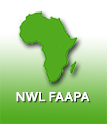By Priscilla Oye Ofori, GNA
Accra, March 16, GNA— A research report has recommended support for Livelihood Empowerment Against Poverty Programme (LEAP) beneficiaries, especially women, to have universal ownership of mobile phones for easy access to funds.
It said implementers could provide support by facilitating women’s mobile phone ownership through partnership with private companies which could give out phones on credit to beneficiaries.
Dr Andrew Agyei- Holmes, a Research Fellow at the Economic Division, Institute of Statistical Social and Economic Research (ISSER), made the recommendations at a stakeholder validation workshop on Gender Assessment on Women’s Access to Digital Financial Inclusion: A Case Study of LEAP Beneficiaries.
The workshop was organised by Ghana’s Ministry of Gender Children and Social Protection (MoGCSP) and the World Food Programme (WFP) in the Capital City of Ghana, Accra.
LEAP is the Ghana Government’s social intervention programme using cash transfer system to address the nutritional, health and educational needs of children under two years old, the elderly, aged 65 years old and above who are without productive capacity, and people with severe disabilities and are unable to work.
The research, conducted by the ISSER, attributed the low uptake of mobile money especially among women to lack of mobile phone ownership and sim cards.
Dr Agyei-Holmes said since 2013, the Government had made conscious efforts to enroll LEAP beneficiaries on the E-Zwich platform to facilitate digital payment of cash transfers which had consequently improved the efficiency of cash transfer procedures.
However, he said, there were some barriers to the progress of the initiative which could worsen gender inequality if not addressed.
Gender gap in formal financial account and mobile money account ownership remains an issue. Sixty-two per cent of males and while 54 per cent of females have a bank account, 44 per cent of males have mobile money account while 34 per cent are women respectively.
The report recommended that beneficiaries must be provided with financial literacy training, adding that those who are confirmed to have had some training mostly, males and the others received their training from informal sources.
It said there must be extensive training on the use of E-zwich card functionalities among beneficiaries as some of them, mostly females could not operate mobile money and were also ignorant of all the functions of the E-Zwich card.
The report also recommended that an E-zwich App and Unstructured Supplementary Service Data (USSD) were built to enable beneficiaries’ access directly, since some beneficiaries wanted to use mobile money operators, but were uncomfortable with them.
It said that beneficiaries’ engagement in Cash-Plus Programmes must be promoted and intensified for improved resilience and livelihoods.
It said the low take up of bank accounts by women were primarily due to lack of funds and necessary documentation.
The report findings revealed that beneficiaries mainly accessed their E-Zwich card through bank officials visiting the community while others use mobile phone operators or banks, however, the use of banks was by far the most expensive in terms of transportation.
According to the findings, women were the main decision makers in terms of the collection of LEAP receipts but their food security outcomes were dire, children and males seem to do better in their food security status.
‘‘Perhaps the women ensure that the children and the males are taken care of first,’ it added.
Ms. Barbara Clemens, the Country Director of World Food Programme, noted that economic empowerment could be possible when everyone was able to equitably participate in the financial system, designed to respond to the specific barriers of diverse groups in mind.
‘‘We know that the traditional financial system often leaves out key groups of people- including women, youth, people with disabilities and others. This exclusion is even worse felt when it also intersects other factors such as low literacy and numeracy skills, high poverty levels, domicile in rural communities etc. This is remarkably close to the profile of a lot of social protection program participants,” she said.
The Country Director said digital payments benefitted women immensely and to local economies, but the risks were also different and unique.
She noted that collaborations with the Government in such programmes allowed the formulation of principled and responsible action to better support women’s journeys, including fair treatment, upholding rights and mitigating risks such as fraud.
Ms. Clemens stressed that the collaborations of development actors and partners with the Government would provide ways to resolve challenges and create more opportunities not only for beneficiaries but to support a whole digital financial ecosystem that would work for all people, while empowering women.


